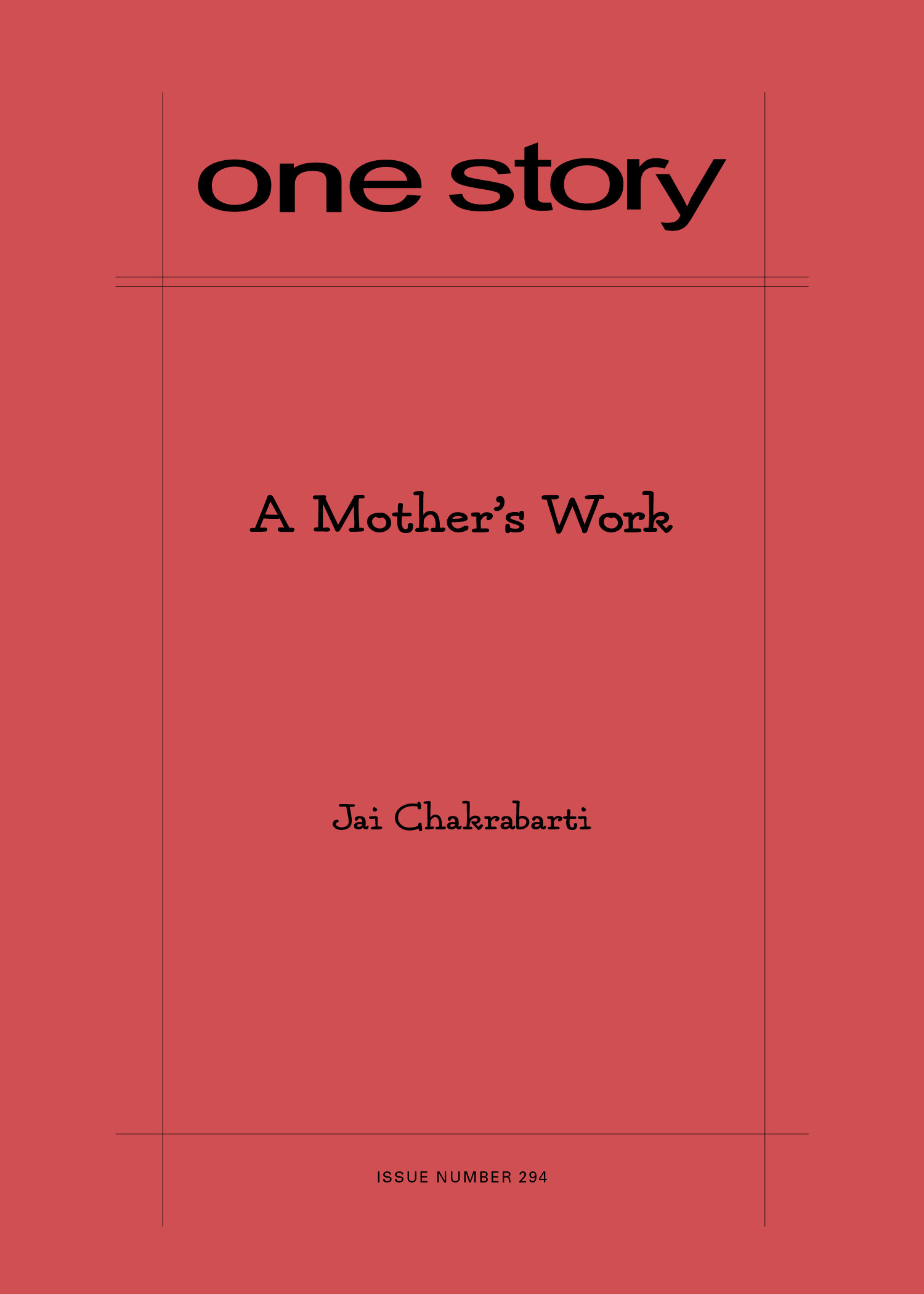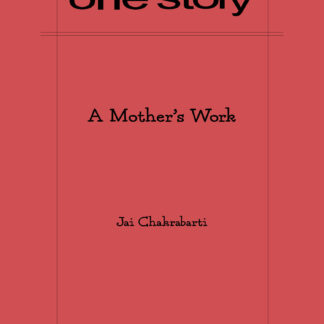
A Mother’s Work
$2.50
257 in stock
Excerpt
Today’s job involves thirty-one-year-old Wall-Streeter, Shubho Chatterjee. Rani has reviewed the case notes enough times to know the young man’s history and habits by heart. For example, Shubho calls his mother at nine-thirty on alternate nights; when he was four he broke his wrist reaching for butter in the topmost cabinet; and he can recite several of Tagore’s romantic poems from memory. Shubho has recently arrived from India, from one of those schools in the north that churn out soft-speaking financial engineers. But Rani has never actually met Shubho, only his elder sister, Binodini, who at their first meeting slipped her wedding ring on and off and said, “This is what the family wants.”
“Don’t worry,” Rani had assured. “I take care of everything.”
Shubho’s apartment is on a desirable block in Park Slope, overlooking gingko trees that are just beginning to bloom. Rani arrives at two thirty and uses a set of keys from Binodini to let herself in. The place is meticulously kept, and Shubho, it seems, has a taste for art deco, judging by the aquiline curvature of the armchair where Rani imagines she’ll spend the next two hours. All the furniture is covered in plastic, which she finds odd, given that he’s lived here for more than a year. His cupboards, however, are typical of her other bachelors. After scavenging, she finds only stacks of ramen noodles and a giant jar of peanut butter. No matter, she’s brought her own ingredients. She takes a package of lentils and pours them, alongside spices she’s carried in her purse, into a saucepan. The room begins to smell of cumin seed and roasted fennel, the scent of home and motherlove.
Jai Chakrabarti
Jai Chakrabarti’s short fiction has appeared in numerous journals and has been anthologized in The O. Henry Prize Stories and The Best American Short Stories, and awarded a Pushcart Prize. His story collection, A Small Sacrifice for an Enormous Happiness, is forthcoming from Knopf (2023). His debut novel, A Play for the End of the World (Knopf, 2021), won the National Jewish Book Award’s Goldberg Prize for Debut Fiction, was named the Jewish Fiction Award Honor Book by the Association of Jewish Libraries, and was longlisted for the PEN/Faulkner Award. Chakrabarti was an Emerging Writer Fellow with A Public Space and received his MFA from Brooklyn College. He was born in Kolkata, India, and now lives in New York.
Patrick Ryan on “A Mother’s Work”
Our new issue is, in a sense, a story about a job—a very unusual job—and the person who does it. In another sense, it’s a fascinating character study of an anti-hero with vulnerabilities. And in yet a third sense, it’s a very quiet sort of mystery/thriller. There’s something about the way it unfolds—particularly in its first half—that reminds me of the groundwork in an early Alfred Hitchcock film.
But here’s the thing: at its heart, “A Mother’s Work” is a love story. A very twist-heavy, wart-ridden love story. For love, the author reminds us, is messy, and often tampered-with, and needs its rent paid, and clings to its own past; in short, love is complicated.
One Story is delighted to present to you this new and multi-faceted short story by the author of A Play for the End of the World, Jai Chakrabarti.
Q&A by Patrick Ryan
- PR: Where did you get the idea for this story?
- JC: I was thinking about the various ways couples get together and considered matchmakers, the important role they’ve traditionally played in many cultures. But what if we had the opposite, I came to wonder—someone whose job it was to break couples apart? This fascination with the idea of a matchbreaker, as it were, led to the first glimpses of Rani’s character.
- PR: How long did it take you to get a draft you were happy with?
- JC: I try to get to a first draft in a couple of weeks, otherwise I’ve found that the original impetus can sometimes fade, but it will take me much longer to get to a draft that I feel comfortable sharing with a reader, even a close friend. In the case of this story, I let it lie for a few months before I returned to it to rediscover its heart. Then I did several large structural revisions, followed by more minor ones at the sentence level. I’d say two years passed before I became happy with Rani and Melody and the way this story pursues their interaction.
- PR: Rani inspires both fear and compassion—not from the other characters in the story, necessarily, but from your reader, who benefits from getting her backstory and a fuller picture of her present life. Your delivery of that information is, I believe, perfectly meted out. Did you play around with different ways to do that (what to tell when)? And did you consider giving us more of Rani’s backstory (or less)?
- JC: I think getting the right amount of backstory is a bit like boatbuilding. You need to shape something that will float in the water, that won’t tip or sink even when you load in the picnic and, later, when the wakes come. Finding that balance is in the work of revision for me, and to stretch this analogy further, the amount of backstory that can be contained depends on the shape of the boat. In the case of this story, I saw it unfolding largely over one scene, so that limited the moments where I could convey information about Rani’s life. By the end of the story, I wanted the reader to know enough to be able to make sense of her behavior, but not so much that the story became about her past.
- PR: I have memories of being in writing workshops in college and hearing people say, “There’s a tone shift. You can’t do that.” And even if it wasn’t my story, I would think, Can’t you? Isn’t that what tone is there for—to shift around? “A Mother’s Work” is, tonally, tense and then tender. Were you at all worried about how that would work?
- JC: I agree, and I suppose that as a reader I’m drawn to stories where the tone does shift notably. I’m particularly interested in the relationship between power dynamics—which characters have what kinds of power and when—and the tone of the story. In "A Mother’s Work," I think we might feel more of that tenderness when Rani begins to lose power in the story, which I find interesting and perhaps telling of the way our vulnerability can inspire compassion in others.
- PR: Were there any surprises for you in writing the story?
- JC: When I began writing, I knew the basic premise and had a very rough sense of the two main characters, so I’d say that much of the story came as a revelation. I was particularly surprised by the level of connection Melody and Rani achieve. I don’t mean to suggest that they achieve any kind of rapport, but I think it’s an encounter that they’ll both remember for a long time, which is what I suppose we hope for when strangers cross paths in fiction.
- PR: What are you working on now?
- JC: I’m working on a new novel and preparing for the February 2023 publication of A Small Sacrifice for an Enormous Happiness, my story collection where this piece will also appear.
- PR: What’s the best piece of writing advice you’ve ever received?
- JC: That a lot of work needed for a story to succeed can happen off the page, as you’re coming to understand your characters. I’ve long done freewriting exercises in the voices of my characters, asked them nosy questions about their lives, and what I learn through this melding gives the piece its particular vibration. Even when you plumb details that don’t make it to the final draft, there’s a confidence from knowing your character as if they were your longtime friend.
